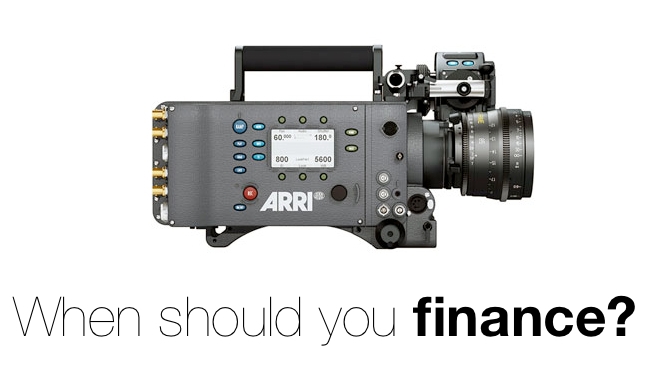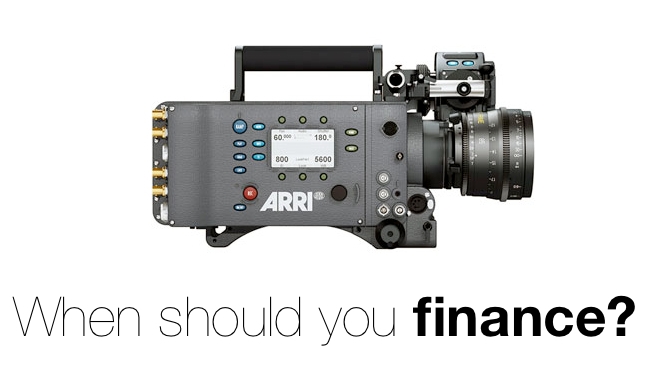
 When Should you Finance?
When Should you Finance?
Peter Savage of Azule outlines what you should consider when deciding if finance is right for you
Most people who extol the virtues of using finance to buy business assets – such as broadcast equipment – usually claim it is the most tax efficient way to do so. In my view, first they may well be wrong and, secondly, they are ignoring the many other good reasons for using finance, especially for small and medium enterprises (SMEs). Without lecturing you on the many different methods of raising finance (lease, lease purchase, rental, contract hire, operating lease, whether on or off balance sheet) I can assure you that if you were to ask five accountants for their advice, they would struggle to come up with the same definitions, the same options and certainly the same tax advantages. Every business should consider a range of options and benefits before deciding what is best for them; saving tax is not the only reason. What else should you consider?
Making the asset work for the company:
Finance allows you to use the asset to generate cash to pay for the equipment. This could enable you to move your business forward – by acquiring new equipment sooner than if you had to go through the pain of saving to pay for it in full. It’s a virtuous, not a vicious, borrowing circle.
Keeping your hard-earned cash for a rainy day:
Do you behave like so many others do: as soon as you clear your overdraft, or have money in the bank, think about reinvesting it in equipment for the business? Using finance to do this leaves your bank account to take the strain of your day-to-day cash flow needs. Similarly, during downturns or quiet periods, when it is often harder to borrow, there is still cash or overdraft headroom in your business so you can more easily survive until the business upturns again.
Don’t put all your eggs in one basket:
Many small businesses tend to keep all their borrowings with one lender. They may, for instance, have a great relationship with their bank manager who understands the history and aims of their business. What happens if he is promoted – and moves away? In comes a new manager who looks at your business, can’t understand why you are borrowing at such a level, and immediately seeks a reduction. He’s pulled the plug on your business. Funding your kit elsewhere removes this risk as banks have no control over external borrowing.
Term finance versus overdraft:
Many people forget that banks can remove overdraft facilities overnight. This could destroy your business. Overdrafts can also be expensive and are usually at a variable rate of interest; your repayments may fluctuate. With most forms of finance, borrowing is for a fixed period; the rate is fixed; and, apart from special conditions relating to insolvency, it can’t be terminated by the lender. Uncertainty or certainty – you decide.
Buying versus hiring:
You regularly hire kit for £300 a day, five times a month. Financing that kit costs £1,000 a month. The financing logic is clear. Always check all options to see what makes most financial sense for you.
Use a specialist not a generalist:
Picture the scene: a bank manager is sitting in the office, along comes a self-employed cameraman wanting to invest in a new 4k camcorder, lens, legs, mike, lights, etc. The bank manager asks how much; the cameraman says £60,000. The bank manager can’t understand how anyone could borrow more than his mortgage for something he visualises on the high street has a value of £2,000. He declines the loan, offers an inappropriate term, or asks for an additional charge on the cameraman’s house. Specialists understand the kit, the customer and the business. They know there is no sense in a loan that lasts longer or shorter than the useful life of the equipment.
Back to tax:
Yes, finance is a tax-efficient method of acquiring or renting assets. But, before deciding, always ask your accountant what’s best for your business – and to check sales people’s claims about tax (they may not be true).
And finally …
Finance is also a good way of spreading your borrowing risk. Most of the Times Top 100 companies use asset finance – but only as part of their overall borrowing portfolio. All finance companies should recognise this important point, giving the customer the best deal for the long term, not a quick fix.
Tags: Business


Comments